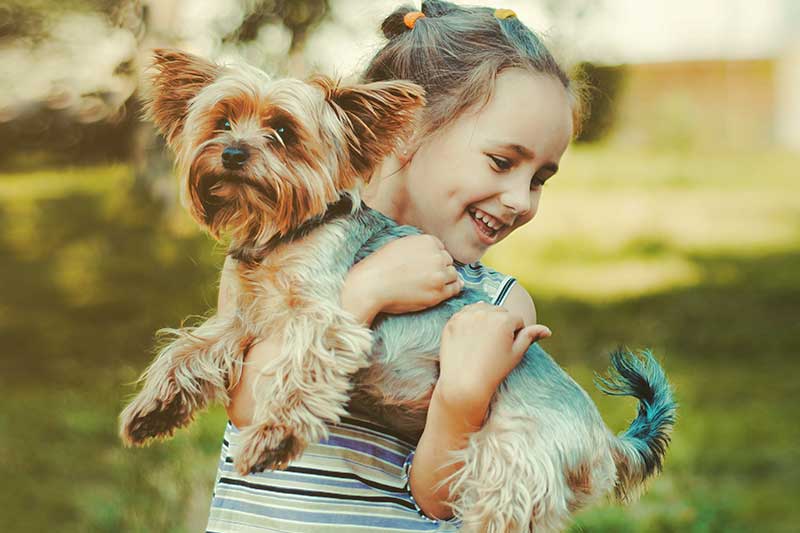
Bringing a pet into your family is a momentous decision that enriches your household and presents a valuable opportunity to teach your child important life lessons. As a family with an unusual number of animals, they are the best (and sometimes the worst), and they are a lot of work. Recently, here at Oregon Kid, Sam Hopes covered “Early Agriculture – Teaching Kids To Care For Farm Animals.” Last year, we covered “Picking Out The Perfect Pet For Your Family.” So, for this article, let’s focus on involving your child in taking care of animals. Taking care of animals is a big deal and something that should include the whole family.
By being in charge of the well-being of an animal, you can instill compassion, responsibility, and empathy from an early age. We will explore the benefits of teaching your child to take care of an animal and provide practical tips for fostering a nurturing and respectful pet-owner relationship.
Caring for an animal teaches children the importance of empathy and compassion towards other living beings. By observing and participating in the daily routines of feeding, grooming, and providing companionship, children develop a deeper understanding of an animal’s needs and emotions. And truthfully, they learn about their own human upkeep as well. They learn to recognize and respond to cues, fostering empathy and compassion as they see firsthand the impact of their actions on their furry friend’s well-being.
Taking care of a pet comes with a set of responsibilities, teaching children the value of accountability and commitment. Assigning age-appropriate tasks, such as filling water bowls, cleaning litter boxes, or walking the dog, helps children understand the importance of regular care and consistency. These responsibilities instill a sense of ownership and pride in their contributions, teaching children the value of fulfilling commitments and the rewards of responsible pet care. Animals are adorable, but they are living and breathing beings that deserve love and respect.
Caring for an animal also instills essential life skills in children. From creating a schedule for feeding and exercise to managing resources such as food and supplies, children learn valuable organizational and time-management skills. They develop problem-solving abilities as they find solutions to challenges that may arise, such as training difficulties or health concerns. Additionally, children often develop effective communication skills as they learn to interpret and respond to their pet’s non-verbal cues. Why is the dog growling, or what does it mean if the cat hisses? These are practical life skills that can be used to interpret their behavior.
Caring for an animal involves teaching children the importance of respecting boundaries. They learn to recognize when their pet needs space, how to approach and handle them gently, and the significance of not overwhelming or causing distress. This understanding of respect and boundaries extends beyond animals and can positively influence their interactions with other people.
If you don’t know where to start with animal care, check out the Oregon Humane Society. They have a ton of online resources that are easy to navigate. In addition, they offer a summer camp for kids. While the camp is full for this summer, the Oregon Humane Society offers summer camps designed to teach children about animal welfare. These camps provide a combination of educational and fun activities, including hands-on interactions with shelter animals, games, arts and crafts projects, and guest speakers. By participating in such programs, children can deepen their love, appreciation, and knowledge of animals while developing important life skills and values. Put this on your list for next year.
Parents play a vital role as role models in teaching their children responsible pet care. By demonstrating love and respect for animals, children are more likely to adopt these behaviors themselves. Spending quality time together, playing, and engaging in activities that promote companionship can help children form emotional connections with their pets. Emphasizing gentle and kind behavior towards animals is another crucial aspect of teaching children to care for pets. Encouraging children to treat animals with kindness and respect through soft voices, gentle touches, and positive reinforcement during training and play fosters a loving and nurturing relationship.
Furthermore, involving children in decision-making regarding the pet’s care, such as choosing toys, selecting food options, or naming the animal, gives them a sense of ownership and responsibility. This involvement fosters a deeper bond between the child and the animal and helps develop decision-making skills. Portland Pet Supply is a great local option for supplies for your animal family member.
Teaching your child to take care of an animal is a rewarding experience that instills valuable life skills and nurtures empathy and compassion. By involving them in the responsibilities of pet ownership, you provide a foundation for them to become responsible, caring individuals. Through this journey, your child will not only develop a deep bond with their furry, scaley, feathery friend but also gain a profound understanding of the interconnectedness of all living beings and the importance of treating them with kindness and respect.

Johanna is married with two kids, three dogs, three cats, one leopard gecko, several chickens, and a few fish. She has been in the Pacific Northwest since the dream was alive in the 90s but has Southern roots and hails from Arkansas. The family spends a lot of time at some sort of sporting event for the kids. Johanna likes to fast craft, garden, host parties, and bake. Johanna and her crew go hard traveling, DIY-ing, and are always up for a new adventure or challenge.
